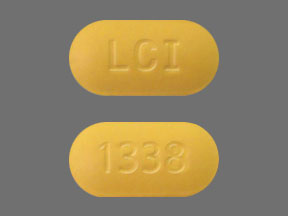Avidoxy Interactions
There are 237 drugs known to interact with Avidoxy (doxycycline), along with 3 disease interactions, and 2 alcohol/food interactions. Of the total drug interactions, 22 are major, 210 are moderate, and 5 are minor.
- View all 237 medications that may interact with Avidoxy
- View Avidoxy alcohol/food interactions (2)
- View Avidoxy disease interactions (3)
Most frequently checked interactions
View interaction reports for Avidoxy (doxycycline) and the medicines listed below.
- Abreva (docosanol topical)
- acetaminophen
- Alavert D-12 Hour Allergy and Sinus (loratadine / pseudoephedrine)
- Aldactone (spironolactone)
- Allegra (fexofenadine)
- Ambien (zolpidem)
- amlodipine
- amoxicillin
- amoxicillin / clavulanate
- ampicillin
- aripiprazole
- Atacand (candesartan)
- Diflucan (fluconazole)
- ketoconazole topical
- Lasix (furosemide)
- losartan
- melatonin
- metformin
- Metoprolol Succinate ER (metoprolol)
- Mucinex (guaifenesin)
- oxycodone
- pantoprazole
- prednisone
- tizanidine
- topiramate
- turmeric
- Vitamin C (ascorbic acid)
- Vitamin D3 (cholecalciferol)
- Zinc (zinc sulfate)
- Zyrtec (cetirizine)
Avidoxy alcohol/food interactions
There are 2 alcohol/food interactions with Avidoxy (doxycycline).
Avidoxy disease interactions
There are 3 disease interactions with Avidoxy (doxycycline) which include:
More about Avidoxy (doxycycline)
- Compare alternatives
- Drug images
- Side effects
- Dosage information
- During pregnancy
- Drug class: miscellaneous antimalarials
- Breastfeeding
- En español
Related treatment guides
Drug Interaction Classification
| Highly clinically significant. Avoid combinations; the risk of the interaction outweighs the benefit. | |
| Moderately clinically significant. Usually avoid combinations; use it only under special circumstances. | |
| Minimally clinically significant. Minimize risk; assess risk and consider an alternative drug, take steps to circumvent the interaction risk and/or institute a monitoring plan. | |
| No interaction information available. |
See also:
Further information
Always consult your healthcare provider to ensure the information displayed on this page applies to your personal circumstances.


